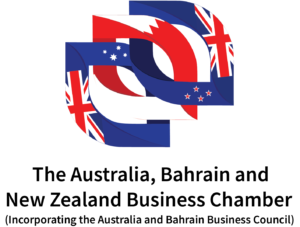
Overview:
Situated in the Arabian Gulf, the Kingdom of Bahrain comprises an archipelago of islands with a total size of 712 sq. km.
In 1783, the Sunni Al-Khalifa family captured Bahrain from the Persians and, during the 19th century, the Al-Khalifas secured their hold on the islands of Bahrain and it became a British protectorate. The archipelago attained its independence in 1971.
With a population of 1.4 million, Bahrain sits to the east of Saudi Arabia and to the west of Qatar. The majority of Bahrainis are Shi’a Muslims, while Bahrain’s monarchy is Sunni. Bahrain prides itself on its multicultural and religious inclusivity.
Bahrain is actively diversifying its economy. Examples of such diversification include efforts to further develop its manufacturing industry and its international banking centre amongst many other initiatives. Bahrain is also a major tourist destination and hosts many international sporting events, including a Formula One Grand Prix. Bahrain also hosts international gatherings such as the annual Manama Dialogue (regional security forum) organised by the International Institute for Strategic Studies.
Bahrain’s Head of State is King Hamad bin Isa al-Khalifa, who acceded to the throne in 1999. The monarch appoints the Prime Minister. Bahrain has a bicameral National Assembly (al-Jamiyh al-Watani), consisting of the Shura Council (Majlis Al-Shura) and the Council of Representatives (Majlis Al-Nuwab). The 40 Shura Council representatives are appointed by the monarch. The 40 Council of Representatives’ members are elected by an absolute majority vote in single-member constituencies and serve four year terms. A second, run-off round is held if no candidate receives an absolute majority in the first round. Parliamentary elections were first held in 2002.Constitutional amendments in 2012 increased the powers of parliament.
An internationally engaged nation:
Bahrain’s primary foreign policy focus is on its GCC neighbours. Bahrain also plays a key role in regional security architecture. Bahrain hosts the United States Navy’s Fifth Fleet and a United Kingdom naval base.
Bahrain is an active member of the United Nations, International Monetary Fund, World Bank, World Trade Organization, GCC, League of Arab States and the Organisation of Islamic Cooperation and Organization of Petroleum Exporting Countries.
Bahrain has maintained friendly relations with most of its neighbour’s and with the world community. It generally pursues a policy of close consultation with neighbouring states and consistently works to narrow areas of disagreement.
As a a member of the Gulf Cooperation Council (GCC) Bahrain has complied with steps taken by the GCC to coordinate economic development and defence and security planning.
In June 2006, Bahrain was elected head of the United Nations General Assembly, and used the honour to appoint Haya Bint Rashid Al Khalifa as the Assembly’s president, making her the first Middle East woman and only the third woman in history to take over the post.
Trilateral relations:
The Australia-Bahrain relationship is longstanding and based upon trade which predates the establishment of formal ties with other Gulf counties. Australia maintained a Consulate General in Bahrain from 1964 until 1986. Australia’s Embassy in Riyadh is accredited to Bahrain.
Economic overview:
As it continues to recalibrate its economy Bahrain has invested strongly in communications and transport infrastructure, and worked to attract multinational businesses. Whilst oil revenue is still 87 per cent of government revenue and 19 per cent of GDP we can expect that to change as Bahrain’s economy transitions into new areas and builds up existing sectors.
Aluminium is Bahrain’s second biggest export after oil. Bahrain holds a majority stake in Aluminium Bahrain (Alba), one of the world’s largest smelters, which announced strongly rising net profits in 2014 and plans to expand production. Bahrain continues to seek new natural gas supplies as feedstock to support its petrochemical and aluminium industries.
Other major economic activities include finance, Islamic banking, construction and tourism.
As part of its diversification plans, Bahrain implemented a Free Trade Agreement (FTA) with the US in August 2006, the first FTA between the US and a Gulf state. Subsequent to this FTA being signed the GCC decided to negotiate FTAs as an economic group.
Trade and investment:
Australia and Bahrain have enjoyed commercial relationships for many years. Australia’s merchandise exports to Bahrain are just short of $1 billion. Australia’s exports have mainly comprise alumina, meat, motor vehicles, dairy products and wheat. There is however great potential for bilateral commerce and co-operation to reach new heights.
New Zealand Imports from Bahrain was US$13.38 Million during 2023.Bahrain Imports from New Zealand was US$69.31 Million during 2022, according to the United Nations COMTRADE database on international trade.
